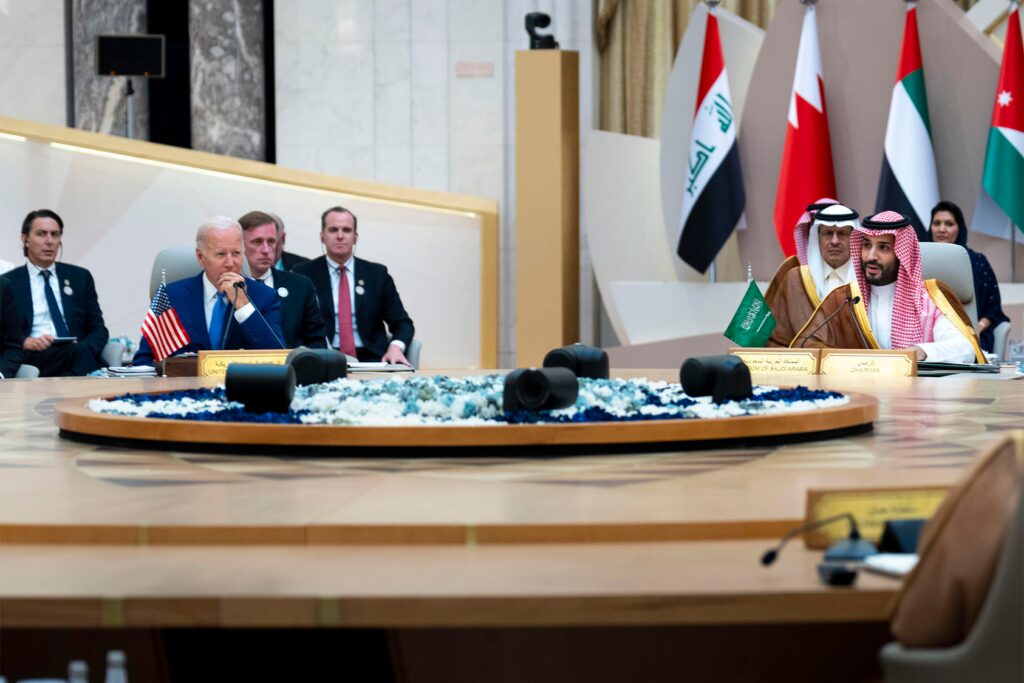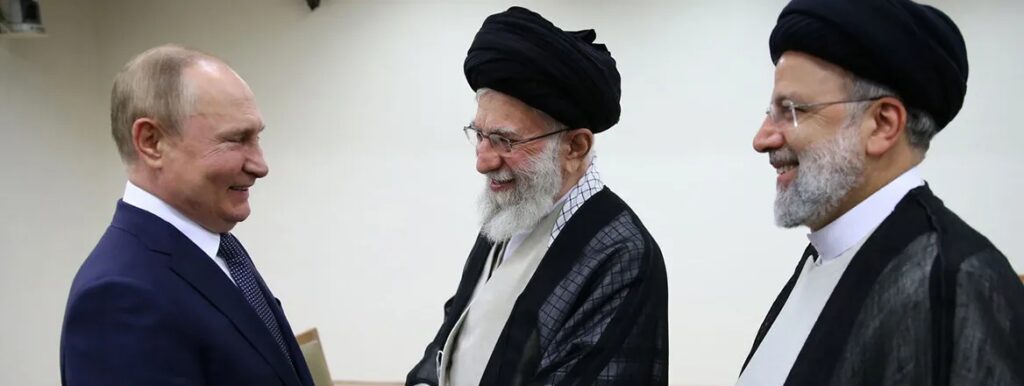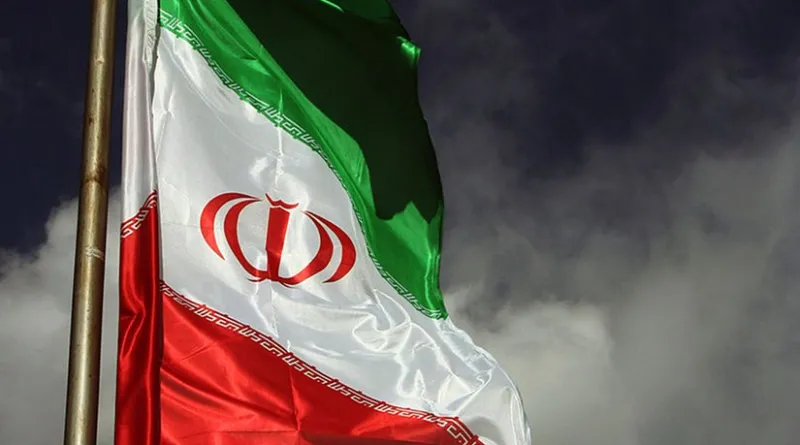Five Takeaways from Biden’s Visit to the Middle East

Russian, Iranian presidents aim to prevent Turkey from a new offensive in northern Syria.
The leaders of Russia, Turkey and Iran are gathering in Tehran, with Ankara’s threat of a new incursion into northern Syria likely to top the agenda. While Turkish President Recep Tayyip Erdogan has both domestic and strategic reasons for the move, Russian President Vladimir Putin and Iranian President Ebrahim Raisi want to maintain the status quo in Syria, where both their countries have expended significant resources to prop up the Assad regime. Russia’s war on Ukraine will also feature prominently at the trilateral summit. Iran has offered to provide Moscow with drones and Putin and Erdogan are reportedly set to discuss restarting Ukrainian grain exports in the Black Sea.








